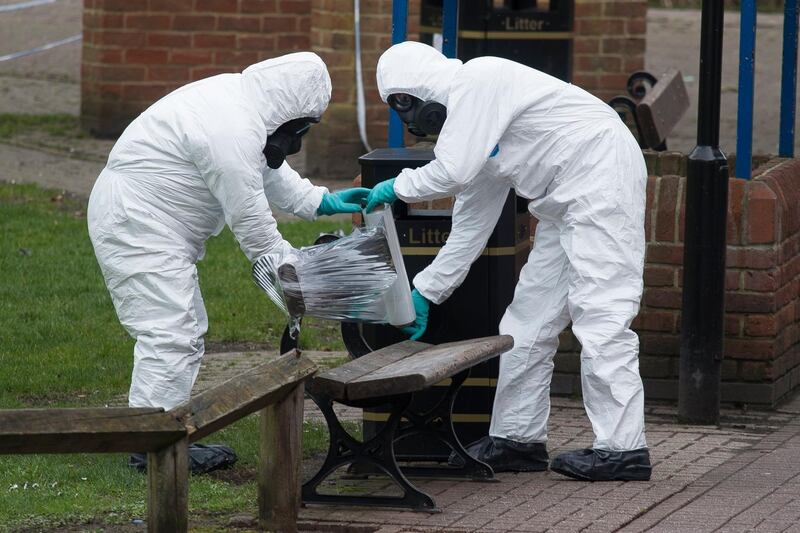The nerve agent used to poison former Russian spy Sergei Skripal and his daughter, Yulia, was "in a liquid form", the British government said on Tuesday.
Mr Skripal, 66, and his 33-year-old daughter, were found on a bench in the southern city of Salisbury on March 4 after coming into contact with the nerve agent Novichok.
The pair were subsequently treated at Salisbury District Hospital and Ms Skripal has since been discharged.
Mr Skripal, who was imprisoned in Russia for acting as a double agent before seeking refuge in the United Kingdom as part of a spy-swap, is still in hospital.
Britain's environment department (Defra) said nine sites in Salisbury needed "specialist cleaning," including a restaurant and a pub where the Skripals spent time before being admitted to hospital. One area in a cemetery, which was previously cordoned off, has since been reopened to the public.
Defra said the process of cleaning will include the testing and removal of items that may have been contaminated, which will then be chemically cleaned and retested.
Update: Clean-up work now underway in #Salisbury in next phase of recovery https://t.co/PD1JMJYZY7
— Defra UK (@DefraGovUK) April 17, 2018
"Thanks to detailed information gathered during the police's investigation, and our scientific understanding of how the agent works and is spread, we have been able to categorise the likely level of contamination at each site and are drawing up tailored plans," said scientific adviser Ian Boyd, chair of the group overseeing the work.
"Meticulous work is required and we expect it will be a number of months before all sites are fully reopened."
About 190 military personnel will help oversee the clean-up project with representatives from the British Army and the Royal Air Force.
The UK has said it is "highly likely" that Russia was responsible for the nerve-agent attack. Moscow has denied the accusation.
_______________
Read more:
[ UK: Russia spied on ex-double agent Sergei Skripal for years ]
[ Watchdog confirms UK findings over nerve agent attack ]
_______________






